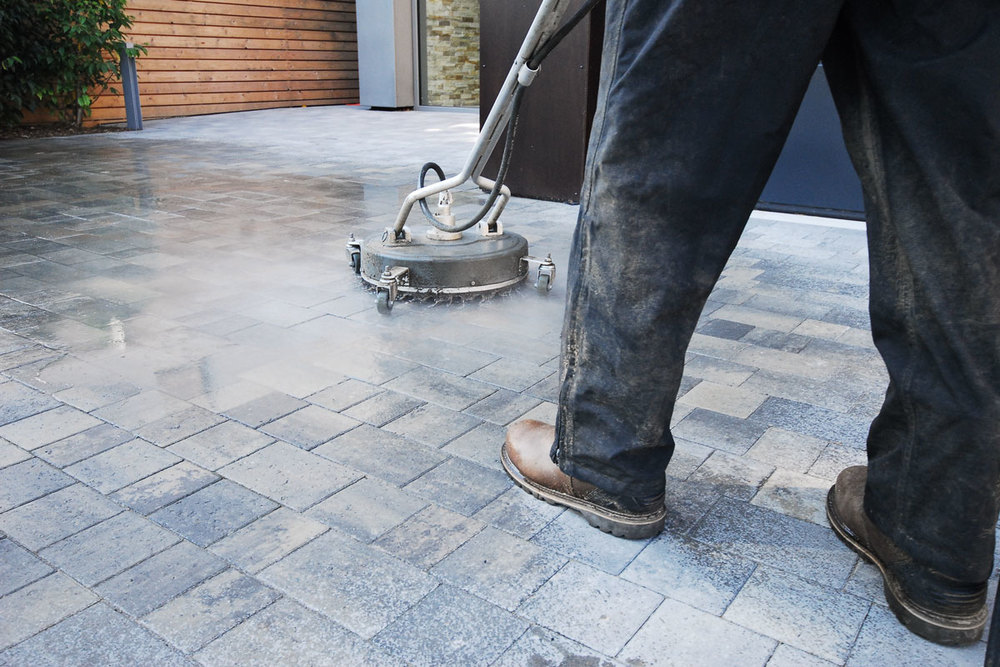What is soft washing
Soft washing is a method of cleaning that effectively eliminates organic stains, mildew, and algae from outdoor surfaces. It employs a low-pressure washing technique and a specialized mixture of biocides or sodium hypochlorite, surfactants, and water to ensure safety and efficiency.
Distinguishing soft washing from power washing, or pressure washing, lies in the equipment, pressure levels, and chemicals used. While soft washing is gentle and employs lower water pressure, power washing requires much higher pressure and is usually used for tougher cleaning tasks. Soft washing, coupled with a biodegradable sanitizing cleaning solution, effectively eliminates mold, mildew, bacteria, algae, fungus, moss, and other contaminants.
Soft washing is ideal for surfaces like patios, driveways, roof tiles, render, decking, cladding, and other areas that are difficult to clean with high-pressure methods or prone to damage. It was specifically designed to combat algae growth and remove staines caused by nature.
One of the significant advantages of soft washing is its impact on roofs. Algae, moss, and other growth on roofs can lead to black stains and potentially cause damage. Soft washing safely eradicates these issues without harming the roofing materials, helping to extend the roof’s lifespan by up to 20 years.
To perform soft washing, start by protecting surrounding plants and grass. Prepare the soft wash solution and apply it using a low-pressure pump and hose. The cleaning solution is then directed onto the surface, where it effectively eliminates contaminants down to the root level, ensuring a thorough cleaning process.
For soft washing, specialized equipment like the Clever Injector Dosatron is necessary. This equipment is designed for gentle yet effective cleaning, ensuring optimal results.
The soft washing process relies on a well-prepared cleaning solution containing specific chemicals:
- Sodium Hypochlorite: This component targets and eliminates mildew spores, algae, moss, and other unwanted organisms, preventing regrowth and damage to roofing materials.
- Water: Diluting sodium hypochlorite with water creates the cleaning solution.
- Clever Wash (Softwash Surfactant): This surfactant aids in loosening, absorbing, and transporting dirt and contaminants for thorough cleaning. Additionally, it reduces run-off, allowing the solution to remain on the roof longer, enhancing its effectiveness.
In conclusion, soft washing is an effective and environmentally friendly cleaning method that safely removes organic stains and harmful growth from various outdoor surfaces. By understanding the distinctions, benefits, and proper equipment and chemicals used in soft washing, homeowners can maintain clean and long-lasting properties while promoting eco-conscious practices.
